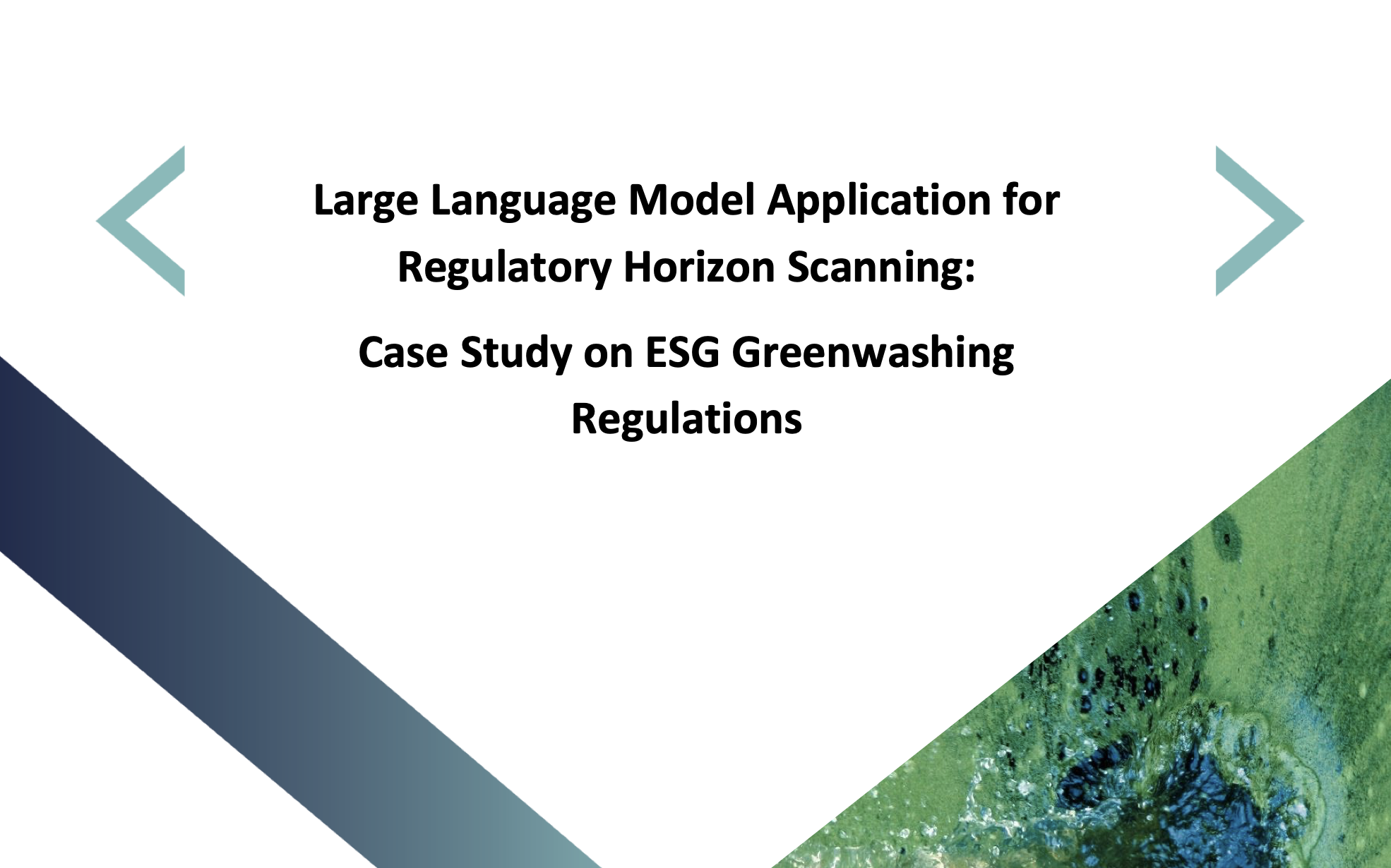AI and RegTech: Industry Insights on AI in Financial Regulation

Article written by Alessio Azzutti (University of Glasgow), Mark Cummins (University of Strathclyde),
Iain McNeil (University of Glasgow).
Note: Segments of this blog were generated by ChatGPT using notes taken on the day capturing the
presentations and discussions. The authors edited this generated content accordingly.
The integration of Artificial Intelligence (AI) into financial practice and regulatory processes represents a pivotal shift, promising enhanced efficiency, accuracy, and innovation across regulatory compliance and supervision. Our recent discussions explored various facets of AI’s role in financial regulation, revealing a landscape rich with opportunities and challenges. This synthesis (generated by ChatGPT from our discussions with industry partners in our AI & RegTech Workshop on 10 May 2024 and revised by the authors) aims to distill key insights from the discussion across themes, providing an overview of the promises that AI bears on regulatory practices. It will be followed soon by a white paper as part of the White Paper Series published by the Financial Regulation Innovation Lab. This white paper will set out the issues in more detail, linking them to prior research and evolving practice.
Transformation of Regulatory Compliance through AI
AI’s integration into regulatory compliance processes marks a significant evolution in how financial institutions deal with complex regulatory environments. Discussions highlighted AI’s potential to revolutionise compliance by automating and augmenting tasks such as data collection, management and analysis, especially in relation to vast datasets in order to generate actionable insights with unprecedented speed and accuracy. At the same time, the efficacy of AI in compliance hinges on several critical factors. Financial regulations encompass a spectrum of rules ranging from overarching principles to specific quantitative benchmarks and qualitative guidelines.
AI applications must move among these diverse regulatory requirements, which vary in complexity and scope across jurisdictions. Participants underscored the importance of regulatory clarity in fostering AI adoption in compliance (RegTech). Uncertainties about regulatory expectations can stifle innovation in RegTech solutions. Standardisation of data formats, communication protocols, and other AI-related requirements emerged as essential prerequisites to streamline AI integration and enhance compliance efficiency. AI can be integrated into compliance through comprehensive system-wide approaches or targeted solutions for specific regulatory challenges. In addressing the relationship between AI and the various layers of regulation, the roundtable emphasised the need to view compliance as a dynamic process and activity rather than a static framework.
Participants agreed on some crucial aspects related to AI governance. Despite AI’s capabilities, human oversight remains indispensable, for instance, to validate AI outputs, ensure ethical decision-making, and interpret regulatory requirements accurately. Indeed, the discussion highlighted the ongoing need for human experts to manage AI-augmented compliance effectively. Greater standardisation in AI-related technologies and regulatory frameworks are also seen as future catalysts for innovation in the RegTech sector. Standardised practices can enable financial institutions and technology providers to focus on enhancing their AI solutions rather than coping with disparate regulatory landscapes.
Design and Governance of AI-Enabled Compliance Systems
The application of AI, particularly its subfield of Machine Learning (ML) methods, in compliance systems was explored as a transformative force reshaping business strategies and operations within financial institutions. AI systems empower organisations to analyse complex datasets rapidly and derive insights that inform decision-making. Among other things, participants highlighted AI’s role in improving risk management, fraud detection, and overall operational efficiency. However, the design of AI systems in compliance is seen as extending beyond automation to facilitate strategic alignment with business goals and regulatory objectives.
In this context, ensuring effective model governance emerged as a critical priority for organisations deploying AI in regulatory compliance. Robust governance frameworks can help ensure transparency, accountability, and compliance with regulatory standards. The emerging field of Explainable AI (XAI) is deemed critical in financial services to ensure transparency and build trust among stakeholders. Clear explanations of AI processes and decisions enhance user confidence and facilitate regulatory compliance.
Addressing biases—whether in data, models, and their inherent human assumptions—was highlighted as essential to ensure fair outcomes and mitigate risks. Robust governance frameworks include mechanisms for bias detection, mitigation, and continuous monitoring to uphold ethical and legal standards. Discussions emphasised the need for clear policies and procedures to monitor AI models in and along the entire AI lifecycle.
Moreover, the debate between in-house AI development versus third-party vendor solutions highlighted some organisational preferences and challenges. Large financial institutions often opt for in-house development to tailor AI solutions to their specific needs and maintain control over data integrity and security.
Broadly speaking, legal and ethical considerations in AI deployment include data privacy, intellectual property rights, and liability for AI-based decisions. The roundtable discussions emphasised the need for clear regulatory frameworks to address all the complexities embedded in AI governance, which necessitates shared responsibility across stakeholders—developers, users, regulators, and consumers. Clear delineation of roles and responsibilities was deemed crucial by participants to mitigate risks and ensure responsible AI deployment.
The specific exploration of Generative AI in compliance identified its potential in automating routine tasks and enhancing productivity. Despite its benefits, concerns about data privacy, security, and the ethical implications of AI-generated content remain paramount. We heard further calls for human-in-the-loop solutions. Human oversight ensures the credibility and accuracy of Generative AI outputs.
Mutual Reinforcement of RegTech and SupTech
RegTech (regulatory technology) and SupTech (supervisory technology) represent two sides of the same coin, namely the adoption of innovative technology to bring greater effectiveness and efficiency to financial regulation and its enforcement. RegTech tools powered by AI enhance regulatory compliance by improving understanding of regulations, managing business activities, and achieving higher-quality compliance outcomes. However, regulatory fragmentation and differing compliance requirements pose challenges to widespread and trustworthy adoption. In parallel, financial supervisors are researching and gradually adopting AI-based SupTech solutions to enhance their ability to achieve supervisory objectives in an efficient and effective manner. Interoperability between RegTech and SupTech systems is essential for frictionless and secure data exchange between regulators/supervisors and regulated entities in order to improve regulatory oversight. Standardised data formats, communication protocols, and AI-related requirements promote collaboration between financial institutions and regulatory authorities. Greater regulatory clarity and standardisation are seen as catalysts for innovation in the RegTech space. Clear guidelines on regulatory requirements targeting AI applications facilitate technological advancements while ensuring compliance with regulatory standards. Collaboration between public authorities, financial institutions, and technology providers is expected to foster a conducive ecosystem for AI innovation in financial regulation. The roundtable discussions emphasised the importance of collaborative efforts to overcome regulatory challenges and promote technological convergence.
Conclusion
The synthesis of the roundtable discussions provides a comprehensive overview of AI’s transformative impact on financial practice and regulatory processes, underscoring opportunities for innovation, efficiency gains, and enhanced compliance. Key themes include (i) AI’s role in dealing with complex regulatory frameworks and (ii) advancing analytical capabilities in compliance systems, but also (iii) requirements for the design of ethical and law-compliant AI solutions, as well as (iv) the mutual reinforcement of RegTech and SupTech. While AI presents unprecedented opportunities, challenges such as regulatory fragmentation, technical robustness and reliability, and ethical considerations require careful consideration. Moving forward, collaboration between stakeholders, regulatory clarity, and robust governance frameworks will be critical in harnessing AI’s full potential while safeguarding against the associated risks. The insights from the roundtable discussions offer a starting point for various stakeholders, including financial institutions, technology providers, and financial regulators, to delve into issues related to AI and the resulting evolving landscape of financial regulation in a responsible and effective manner. With continued advances in AI, its integration into regulatory practices, if supported by adequate governance, holds promise for shaping a more resilient, efficient, and tech-savvy financial ecosystem.
Image by, https://www.freepik.com/free-photo/standard-quality-control-collage-concept_30589261.htm#fromView=search&page=1&position=0&uuid=5ac75fc0-aba0-4b75-96b8-13559c1795a8



